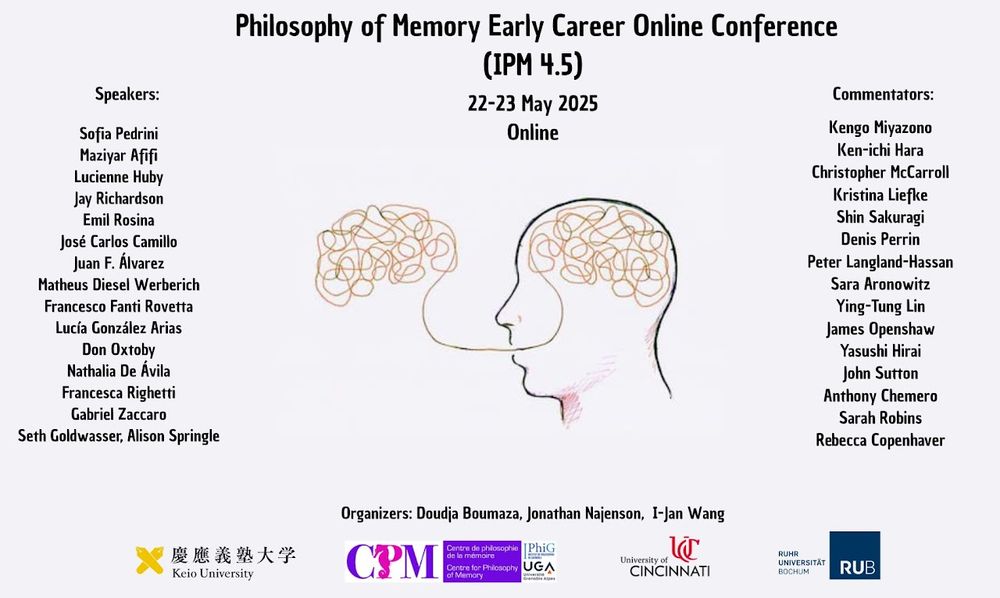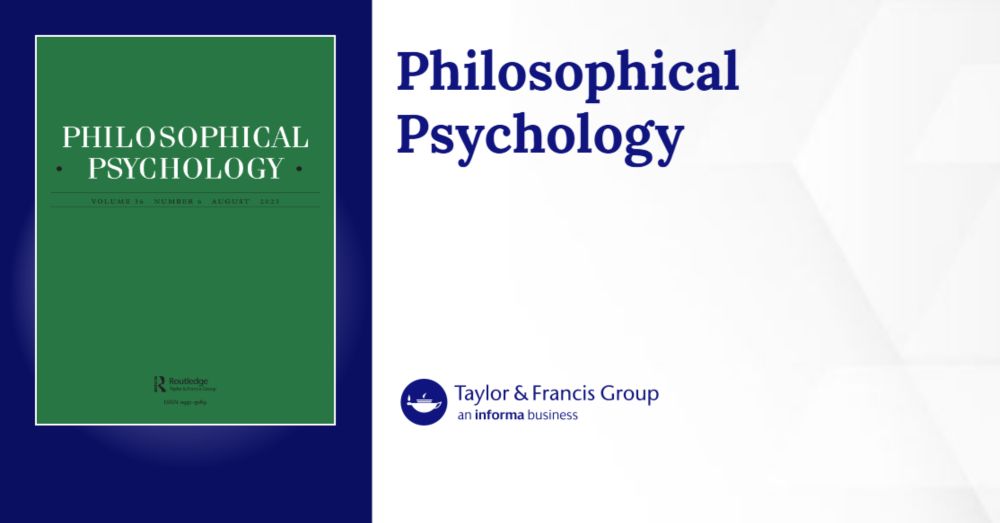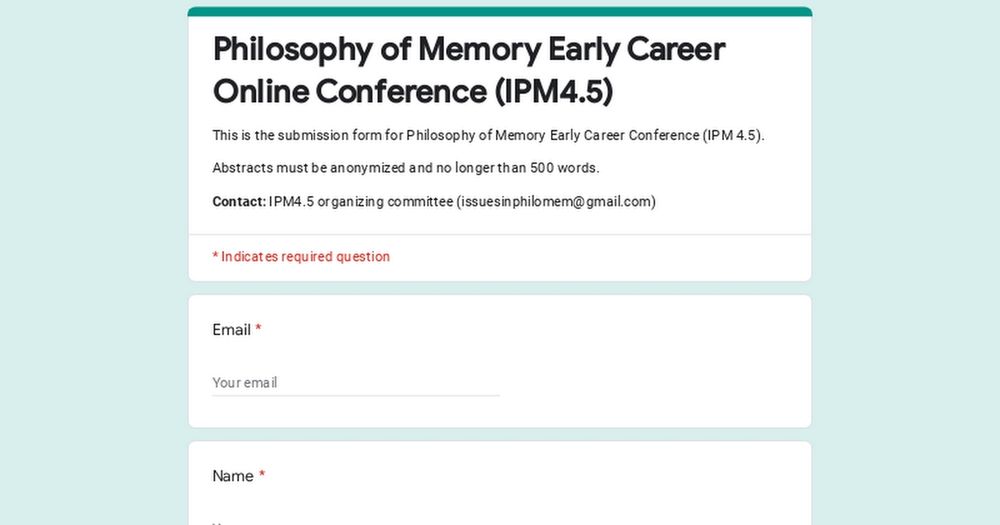https://sites.google.com/view/jonathan-najenson/home
Submit to PLM Workshop: Traces and Engrams by 30 November
#philsky
#philsci
#cogsky
#neuroskyence
Join us for the PLM Workshop: Traces and Engrams – Philosophical and Neuroscientific Perspectives on Memory
RUB, 18–20 Feb 2026
Apply by 30 November!
Submit here 👉https://forms.gle/Gkjbvmb8Q8v9KRyS9
#philsky

Submit to PLM Workshop: Traces and Engrams by 30 November
#philsky
#philsci
#cogsky
#neuroskyence
Join us for the PLM Workshop: Traces and Engrams – Philosophical and Neuroscientific Perspectives on Memory
RUB, 18–20 Feb 2026
Apply by 30 November!
Submit here 👉https://forms.gle/Gkjbvmb8Q8v9KRyS9
#philsky

Join us for the PLM Workshop: Traces and Engrams – Philosophical and Neuroscientific Perspectives on Memory
RUB, 18–20 Feb 2026
Apply by 30 November!
Submit here 👉https://forms.gle/Gkjbvmb8Q8v9KRyS9
#philsky
Program and connection details here: phomo.org/events/ipm4-5

Program and connection details here: phomo.org/events/ipm4-5


Program and connection details here: phomo.org/events/ipm4-5

Program and connection details here: phomo.org/events/ipm4-5



Submit here:
👉 forms.gle/J6RdzD3qdvdP...

Submit here:
👉 forms.gle/J6RdzD3qdvdP...

Submit here:
👉 forms.gle/J6RdzD3qdvdP...
doi.org/10.3758/s134...

doi.org/10.3758/s134...


Listen to Paul Middlebrooks's latest "Brain Inspired" podcast, in which he talks with @thehessam.bsky.social about how universal computation may have evolved via RNA mechanisms: bit.ly/4eQ4Idc

Listen to Paul Middlebrooks's latest "Brain Inspired" podcast, in which he talks with @thehessam.bsky.social about how universal computation may have evolved via RNA mechanisms: bit.ly/4eQ4Idc

Listen to Paul Middlebrooks's latest "Brain Inspired" podcast, in which he talks with @thehessam.bsky.social about how universal computation may have evolved via RNA mechanisms: bit.ly/4eQ4Idc
#philsky #philscisky
open.substack.com/pub/thememor...

#philsky #philscisky

